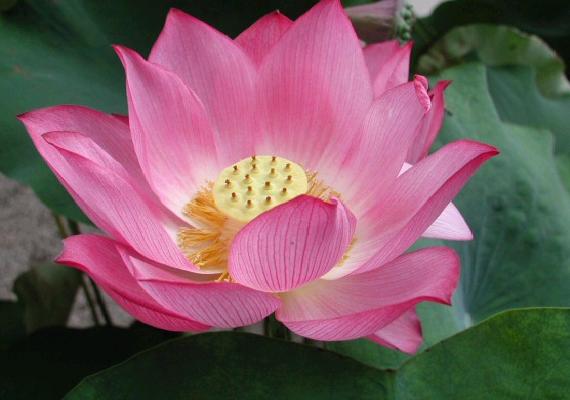Resilience, Part 3
On the first evening of a Coming Home retreat a former Marine officer reported that someone had stolen the TV in his room. I worried for a moment but then everyone burst into laughter and I caught on. Who took my TV?! Of course his room never had one, and although it was a stretch for him, that was fine.
Enforced silence is painful. Not speaking unless spoken to, or being seen but not heard, is stultifying. Trying not to think or talk about something that's on your mind is stressful and often futile. But many veterans, family members and providers tell us what a release it is to arrive at a retreat, feel the beauty of the surroundings, and experience the whole body begin to ratchet down. Coming home is coming to rest; allowing ourselves to unwind, to take a load off. And yet we struggle with it. We keep on the go, revved up, the foot stuck on the accelerator pedal. We're plugged in alright, but into what? We're connected, but connected to what?
Pico Iyer, in an essay titled The Joy of Quiet, explores in simple language territory that many, without experience or even interest in meditative practice, can relate to. So does Robert Wicks in the accessible guides Bounce and Riding the Dragon.
A friend told the story of how her husband, a psychotherapist, came home from seeing patients one day and said, "You know dear, I really love understanding." She responded, "Me too, but sometimes I like 'standing' even more." When waves of strong emotion rush through us, it's a good thing to be able to "stand," not just react in our usual ways to, them. So the ability and the willingness to experience what's going on within and around us, the good, the bad, the ugly, and everything in between, is an important component of a supple heart and mind. Cultivating acceptance, not resignation -- a wide welcoming awareness, short on judgment and long on compassion -- takes time. But it is possible, and it can change our relationship to suffering.

When consumed with anguish we automatically react by closing off or ramping up, foot stuck on the brake or foot stuck on the accelerator. Instead of just reacting, we can come to a full, purposeful stop. Stopping, looking and listening. I was once living in a small refugee community that welcomed displaced and traumatized families. The teacher made a large calligraphy for the meditation hall that said "Breathe. You are alive." Stopping. Breathing. Returning to life. The path to rest and refreshment begins simply. When haunted by war-related or other trauma, the buoyancy of a community is often needed to support us.
It's remarkable to be with veterans as they learn to safely let down their guard, to slow down long enough to hear themselves think, to smell the tree sap, listen to the birds, enjoy their children's laughter, and see loved ones as if for the first time. Service members learn to deploy into war zones and to deploy lethal force. But deploying attention and learning to put it at the service of reconnecting and healing is something else again. Quiet can't be forced but it can be cultivated: an attentive energized stillness rather than a vegetative quiet that shuts the mind down. When it arrives naturally, when hyper-vigilance abates, it is a relief and a pleasure. It feels good to just be.
Meditation utilizes purposeful awareness and can be practiced in a variety of ways: One, in tumultuous times it can help restore emotional balance and keep us from doing things we might regret later. We can also meditate regularly, say a few mornings a week to start, whether we need it or not. Everyday life can become a field of meditative practice by engaging with even the most mundane or irritating activities. By directing our awareness fully, forgetting ourselves as we water the garden, clean the bathtub or write a report, simple activities can become gateways to quiet pools of composed energy. Finally, practice can help break through entrenched misunderstandings, cultivate spiritual qualities such as compassion, equanimity, and wisdom, and more deeply grasp the meaning of our coming and going, living and dying lives.
The purpose of meditation is not to stop our thinking but to create conditions for rest and peace and understanding by cultivating our attention. Say you notice your awareness becoming consumed by small details, or by preoccupations with the past, or worries about the future. Think Three R's: first recognize what's happening; then remember that it need not be business as usual, that you can practice with it; then, using selective attention, let your awareness return to being here, in this body, in this moment, breathing and alive.
Now think about a moment of great stress that blindsides you when you least expect it. Your capacity to reflect has been highjacked. But, you can learn to stop, look and listen. You can recognize, remember and return. You are not pretending that everything is hunky dory, but rather, you become aware of what's going on, even if you don't fully understand it. You recognize. And you deliberately take "the pause that refreshes," remembering that there's a way to practice, even with this. You lean into the discomfort and return, to your breath, your life, right here and now. You don't expect the stress to go away forever. But gradually, with diligent practice, space opens up, life looks and feels different. Pain doesn't disappear on command, but neither does it consume and derail us as frequently. Inner peace, quiet, and composure are gifts beyond price, but they are available to each of us, and they develop as a function of our investment in our own intrinsic capacities.
